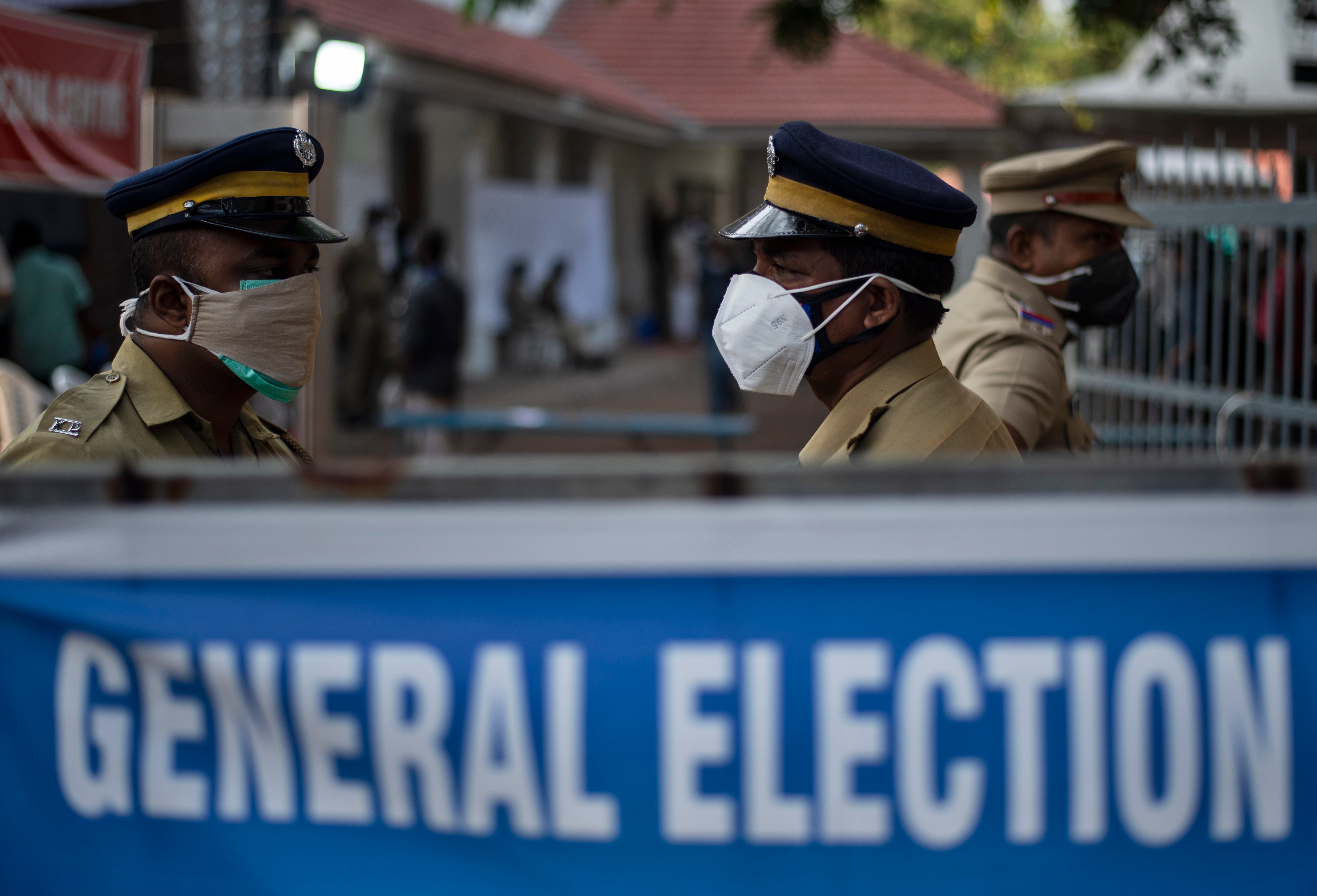Indian leader's party takes electoral hit amid virus surge
Public anger has been directed at the ruling party for allowing the elections to go ahead during the pandemic

Your support helps us to tell the story
From reproductive rights to climate change to Big Tech, The Independent is on the ground when the story is developing. Whether it's investigating the financials of Elon Musk's pro-Trump PAC or producing our latest documentary, 'The A Word', which shines a light on the American women fighting for reproductive rights, we know how important it is to parse out the facts from the messaging.
At such a critical moment in US history, we need reporters on the ground. Your donation allows us to keep sending journalists to speak to both sides of the story.
The Independent is trusted by Americans across the entire political spectrum. And unlike many other quality news outlets, we choose not to lock Americans out of our reporting and analysis with paywalls. We believe quality journalism should be available to everyone, paid for by those who can afford it.
Your support makes all the difference.Preliminary voting trends released by India's electoral body on Sunday indicate prime minister Narendra Modi’s Hindu nationalist party failed to make gains in four recent state elections, a sign his political strength may be slipping as the country struggles to contain an unprecedented surge in coronavirus cases.
Health experts say the massive electoral rallies and marches held as voters cast their ballots in March and April are partly to blame for the subsequent spike in Covid-19 infections. Public anger for allowing the elections to go ahead despite the risk has been directed at both Modi’s ruling Bharatiya Janata Party (BJP) and the independent Election Commission. The commission will release the final results of the elections later on Sunday.
Even before the current virus surge, Modi's party faced stiff challenges in making inroads in these local elections. Following the disappointing results, Modi stands weakened but is likely to stay on as prime minister until his term ends in 2024.
The Election Commission's voting-trend forecasts on Sunday showed the BJP trailing in West Bengal state behind a powerful regional party, apparently unable to dislodge the state’s firebrand chief minister, Mamata Banerjee, after a hard-fought campaign.
Modi's party looks set to retain power in the northeastern Assam state for a second term, but failed to pick up any significant gains there or make inroads in two southern states, Tamil Nadu and Kerala.
“The BJP started running out steam as the pandemic spread,” said political analyst Nilanjan Mukhopadhyay.
“The verdict in West Bengal state will definitely weaken Modi’s position,” he said, but added that further study of the results was needed in order to say how much this was a referendum on the BJP’s handling of the Covid-19 outbreak.
Last week, the High Court in Tamil Nadu state blamed the Election Commission for allowing crowded campaigns in the middle of a global pandemic. India's daily new virus cases began rising past 100,000 in late March, and topped 300,000 daily new cases on April 21, collapsing the country’s tattered healthcare system.
“Your institution is singularly responsible for the second wave of Covid-19. Your officers should be booked on murder charges probably,” the court said.
Across India, death is so omnipresent that burial grounds are running out of space in many cities, and glowing funeral pyres blaze through the night. With the government unable to maintain a steady supply of oxygen to overwhelmed hospitals, desperate relatives plead outside for supplies, while others weep in the street for loved ones who died waiting for treatment.
On Sunday, India recorded a slight drop in new infections, reporting 392,488 cases, down from a high of 401,993 in the previous 24 hours. It also reported 3,689 additional deaths, bringing the total number of fatalities to 215,542. Experts believe both figures to be well below the true figures.
Modi's party has soared in Hindu-dominated regions in central and northern India since he was elected in 2014. The recent local elections were seen as crucial for the party to gain a foothold in three states that have sizeable minority Muslim populations. The Hindu nationalist BJP has for years been accused of stoking religious polarisation and discriminating against minorities.
The prime minister also wants to project the BJP as a national party, replacing the dynastic Congress party that governed India for more than six decades after independence from British rule in 1947.